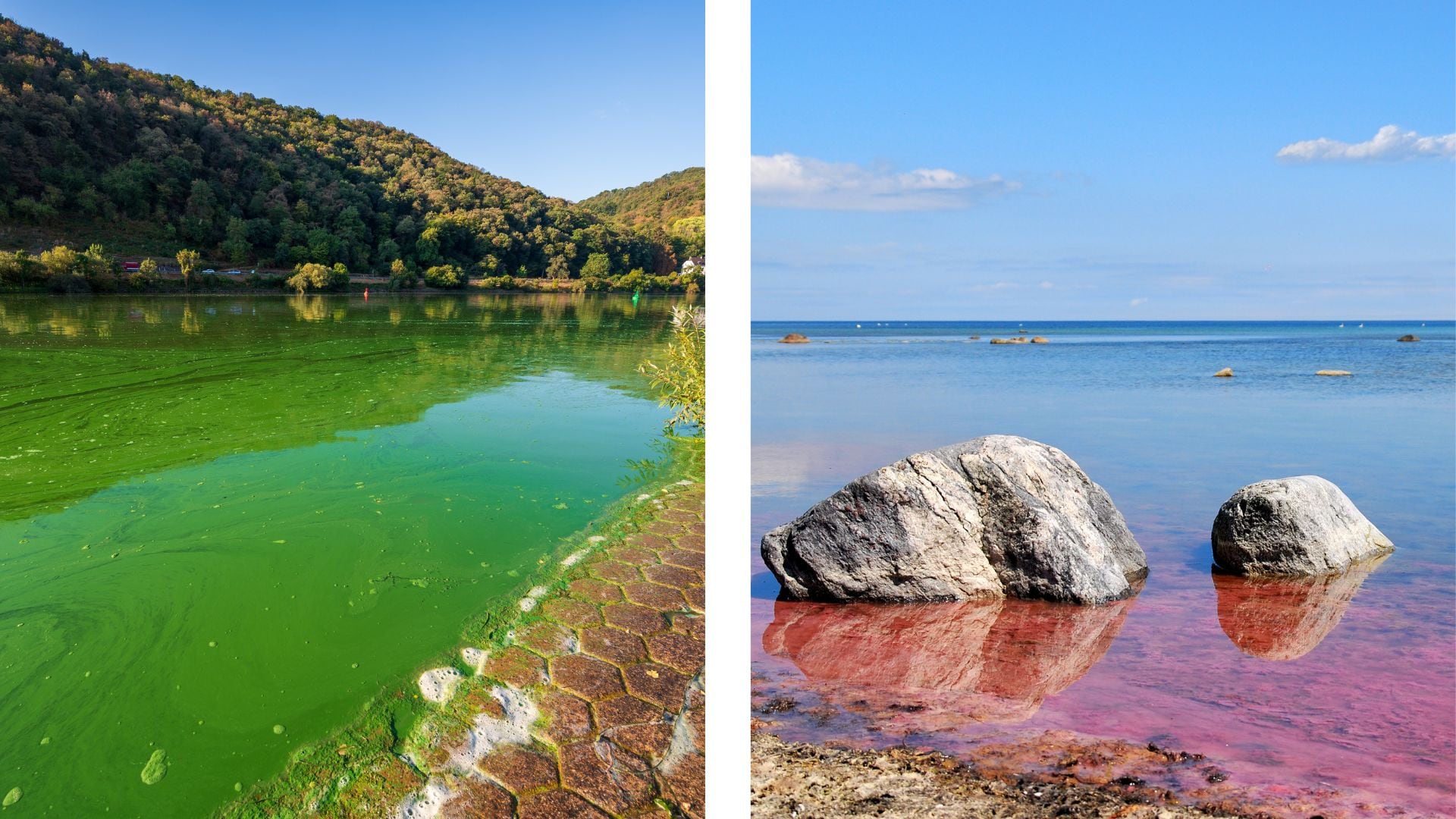Key points
- Harmful algal blooms can cause mild to life-threatening illnesses.
- Symptoms depend on the type of harmful algal bloom you come in contact with.
- Animals—including pets, livestock, and wildlife—can get very sick and die from contact with harmful algal blooms.

Early symptoms
Harmful algal blooms that grow in lakes or rivers often cause different symptoms than those in oceans or bays.
Symptoms depend on:
- How you are exposed (come into contact with harmful algal blooms or the toxins they make)
- How long you are exposed
- Which type of toxin is present
- How much toxin is present

Common symptoms include:
- Stomach pain
- Rash
- Headache
- Coughing
- Watery eyes
- Nose irritation
- Sore throat
These symptoms are most often caused by having contact with water or food containing harmful algae, cyanobacteria (blue-green algae), or their toxins. Contact includes touching water, breathing in tiny water droplets, or swallowing water or food.
More serious symptoms can include:
- Liver damage
- Seizure
- Irregular heartbeat
Serious illnesses are most often caused by eating seafood or swallowing water containing certain harmful algal bloom toxins.
Later symptoms
The long-term health effects of harmful algal blooms for people and animals remain unclear. Researchers are still learning about these effects.
When to talk to your doctor
If you think you have symptoms caused by a harmful algal bloom, contact a healthcare provider. They can give you advice about how to relieve your symptoms.
You can also call the Poison Control hotline at 1-800-222-1222. The specialists might be able to give you information about illnesses caused by harmful algal blooms.
Signs in animals
Harmful algae can be deadly for animals
Signs of illness in animals—including pets, livestock, and wildlife—can include:
- Throwing up
- Loss of energy
- Stumbling and falling
- Seizures
